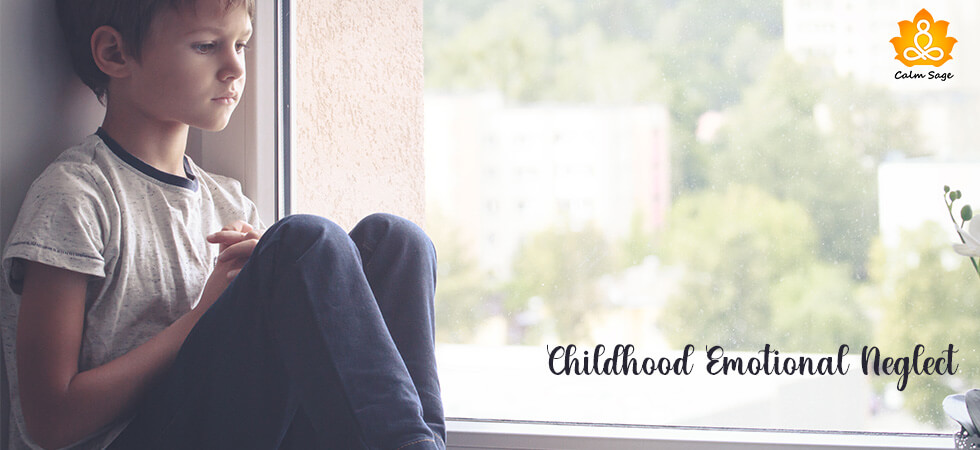Childhood Emotional Neglect: Definition, Signs, Possible Causes, Effects & More!

Childhood is that phase in our lives where we’re open and susceptible to emotions and our emotional needs. Childhood is when we learn what emotions and feelings are and how they change our thinking and affect our health.
But what happens when our emotional needs are neglected? Emotional neglect as a child can have severe long-term consequences not only on our mental but emotional development. Childhood emotional neglect is when parents or guardians fail to respond or even notice their child’s basic emotional needs.
Recognizing the signs, effects, and causes of childhood emotional neglect is important for parents, guardians, teachers, or caregivers. Knowing what emotional neglect can do to a child’s emotional development can guide you to take steps to help your child overcome it.
Let’s start by understanding what childhood emotional neglect is.
[Related Read: Understanding Maslow’s Hierarchy of Needs: Know What You Really Want]
Childhood Emotional Neglect
A parent’s or guardian’s failure to notice, regard, validate, or respond to their child’s emotional needs can be referred to as childhood emotional neglect. Emotional neglect is not to be confused with emotional abuse.
Where abuse is an intentional and purposeful act to inflict harm, neglect is intentional ignorance of a kid’s feelings and emotions.
Emotional neglectful parents are still able to care for their child, however, they miss or skip this one aspect of their child’s emotional development.
An example of emotional neglect can be: when a child tells their parents that they feel sad about losing their favorite toy. The parent might dismiss this concern of their child’s as a game or something unimportant. With time, this behavior may cause the child to feel as if their emotions or emotional needs are not as essential.
While the effects of this childhood emotional neglect can be very subtle, they can be long-term or even lifelong. In some cases, parents may even not recognize that they are being emotionally neglectful.
Understanding the signs of emotional neglect can help parents, caregivers, and teachers go in the right direction and get the child the right help.
Signs Of Emotional Neglect As A Child
As I mentioned, the signs of emotional neglect in children can be subtle but long-lasting. Here are some common signs and symptoms of emotional neglect you should be on the lookout for:
- Feeling depressed
- Feeling anxious
- Experiencing apathy
- Hyperactivity
- Aggression
- Delay in development
- Low self-esteem
- Withdrawing from others
- Appearing uncaring
- Avoiding emotional intimacy
Emotionally neglected children often grow up to be adults who face difficulty emotionally addressing concerns or becoming emotionally attached to others. Common effects of childhood emotional neglect on adults can result in:
- Post-traumatic stress disorder
- Depression
- Emotional inaccessible
- Risk of developing eating disorders
- Avoiding emotional intimacy
- Feeling hopeless or empty
- Low self-confidence
- Feeling shame or guilt
- Risk of angry outbursts
- Difficulty relying on or trusting others
- Rejection sensitivity
Note: It is possible that adults who were emotionally neglected as children may grow up to become emotionally neglectful parents. Such adults do not know how to deal with emotions therefore they may face difficulty in addressing and nurturing their child’s emotional needs.
Possible Causes For Emotional Neglect
Similar to the causes of child abuse, the causes of emotional neglect are many and not as easy to understand. Parents might be caring and loving towards their child but at the same time, they might neglect the emotional needs of their child. Sometimes without even meaning to.
Some possible reasons that may cause an adult to neglect their child’s emotional needs can be:
- Struggling with depression
- Struggling with substance abuse
- Struggling with mental health disorders
- Struggling with anger and aggression issues
- A lack of emotional development
- A history of childhood emotional neglect
- Unhealthy parenting style
A lack of emotional response to an emotional situation from a child can help doctors diagnose childhood emotional neglect. If you see a child being emotionally or in any way neglected, you can contact:
- Child Protective Services or Social Workers
- A pediatrician
- National Child Abuse Hotline: 1-800-422-4453
- National Parent Helpline: 1-855-427-2736
You can also visit Child Welfare Information Gateway to report child neglect or abuse.
Childhood Emotional Neglect Treatment
Whether you were emotionally neglected as a child or have a child in your care who is being emotionally neglected, there are treatment options available:
1. Individual Therapy
With the help and support of a therapist, a child can learn how to deal with their emotions in an effective yet healthy way. If you’re used to bottling up your emotions or numbing them, then it can be difficult to express and cope with emotions healthily. With a mental health professional, emotionally neglected children, as well as adults, can learn to recognize emotions, address them, and cope with them.
2. Family Therapy
In family therapy, both – the parents and the child – are taught the impact of emotional neglect and how to cope with the issues that arise with emotional neglect. A family therapist can help identify the unmet emotional needs and what can be done to fix them.
3. Parenting Classes & Courses
There are parenting classes and courses that can help parents learn how to effectively address their child’s emotional needs while making sure that they don’t neglect those needs. Online parenting courses can help teach parents and guardians the skills they need to recognize, address, and respond to their child’s emotions and needs.
Emotions Are Important…
Childhood emotional neglect can not only affect a child’s self-confidence, self-worth, or sense of self but it can also affect their emotional wellness and health. Neglecting a child’s emotional needs makes them feel that their emotions and feelings are not important.
The result of such behavior can be severe to their mental and emotional development. With the right treatment and coping methods, it is possible to overcome emotional neglect.
If you’re a parent who’s struggling with meeting your child’s emotional needs, you can consult a mental health professional for more resources. You can also write to us at info@calmsage.com.
You can also let us know in the comments section below what you think about childhood emotional neglect and its effects. We’re always happy to hear from you!
Take Care!




















